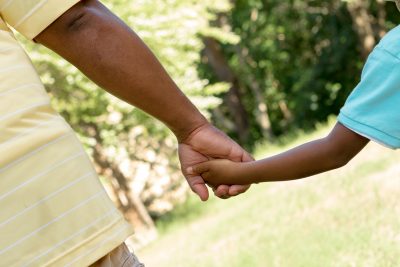A Brief Overview
- FYSPRT (pronounced fiss-burt) is a hard acronym to learn, but it’s worth the effort for families and young people who want to talk about improving mental healthcare systems around the state.
- Here’s what FYSPRT means: Family members, Youth and System Partners (professionals) get together at a “Round Table” (meaning everyone has an equal voice) to talk about issues related to emotional distress, mental illness and/or substance-use disorder. All participants share ideas about what helps and what could make things better.
- The Washington State Health Care Authority (HCA) provides a map of the 10 FYSPRT regions and includes contact information for local leaders and a schedule of where/when meetings are held.
- FYSPRT began after a class-action lawsuit against the state, TR v Dreyfus. The litigation resulted in development of the state’s out-patient mental-health services program for youth—Wraparound with Intensive Services (WISe).
- FYSPRT is a place where families provide feedback about WISe, but all community members are welcome—regardless of age or agency affiliation.
- Some regional FYSPRTs sponsor separate meetings and social events for youth.
Full Article
Parents and young people who struggle with emotional distress, mental illness and/or substance-use disorder can feel powerless to affect change in a complicated medical system. The Family, Youth and System Partner Round Table (FYSPRT) provides a meeting space for family members and professionals to talk about what’s working and what isn’t working in the state’s mental health systems. The groups also provide informal networking and can provide ways for families to meet up and support one another under challenging circumstances.
The state sponsors 10 FYSPRT groups to serve every county: A list of the groups and which counties they serve is included at the end of this article. Each group reports to a statewide FYSPRT, which provides information to state government to influence policy. The Washington State Health Care Authority (HCA) provides a map of the FYSPRT regions and includes contact information for local leaders and a schedule of where/when meetings are held.
FYSPRT began as part of a class-action lawsuit against the state, referred to as TR v Dreyfus. The litigation began in 2009, and settlements were mediated in 2012-13. The federal court found that Washington wasn’t providing adequate mental health services to youth and required that the state start delivering intensive community-based mental health treatment. The state responded by developing the Wraparound with Intensive Services (WISe) program for youth under 21 who are eligible for Medicaid. WISe teams provide a wide range of therapies and supports with a goal to keep the young person out of the hospital, which costs more and can be traumatizing.
Young people under 18 who need residential care are referred to the Children’s Long-Term Inpatient program: PAVE’s website provides an article about CLIP.
To provide accountability for the delivery of WISe services, the state created FYSPRT as a forum for families to provide feedback about how the program is working. The mission is to provide an equal platform for everyone within the community to strengthen resources and create new approaches to address behavioral needs of children and youth.
FYSPRT provides a space where youth impacted by behavioral health issues and their family members can share ideas about what works well and what would work better. The FYSPRT model is based on the belief that everyone’s unique perspective is equally important, and everyone is invited. FYSPRT meetings are open to all interested community members. Each community has unique participants depending on what agencies work in the cities and towns within the region.
In order to create an atmosphere of equality, the FYSPRTs are led by a combination of youth, family members, and systems partners. While a healthcare organization often works as the convener, the leadership is split between the Tri-Leads, who are elected from their membership. These include Youth Tri-Leads, Family Tri-Leads, and System Partner Tri-Leads. For many parents and youth, FYSPRT becomes a place to bond and connect to support one another. Some regional FYSPRTs include separate meetings for youth, and those groups can become a key social outlet.
Staff who serve families through WISe are key participants. Other attendees are case managers from the state’s Medicaid-provider agencies, behavioral health counselors, foster-care workers, staff of homeless programs and staff and volunteers from affiliates of the National Alliance on Mental Illness (NAMI). Other participants are leaders of support groups for youth in recovery or working with issues related to gender identity or sexuality. PAVE staff are regular attendees in many regions.
Every area of the state of Washington has its own FYSPRT, overseen by the Health Care Authority. Each of the ten FYSPRT regions is comprised of a single county or up to eight adjoining counties. In order to create greater participation from the general public, transportation and childcare stipends are available for families and youth in most areas. Some groups provide free meals for everyone and/or gift card incentives for the families and young people who attend. Family and Youth who act as leaders (Tri-Leads) along with system partners are paid for their participation.
Here are links to each regional FYSPRT’s website and a list of the counties each represents:
System of Care Partnership – Mason, Thurston
Great Rivers Regional FYSPRT – Cowlitz, Grays Harbor, Lewis, Pacific
HI-FYVE – Pierce
King County Community Collaborative (KC3) – King
North Central Washington FYSPRT – Chelan, Douglas, Grant, Okanogan
North Sound Youth and Family Coalition – Island, San Juan, Snohomish, Skagit, Whatcom
Northeast FYSPRT – Adams, Ferry, Lincoln, Pend Oreille, Spokane, Stevens
Salish FYSPRT – Clallam, Jefferson, Kitsap
Southeast FYSPRT – Asotin, Benton, Columbia, Franklin, Garfield, Kittitas, Whitman, Yakima
Southwest FYSPRT – Clark, Klickitat, Skamania

